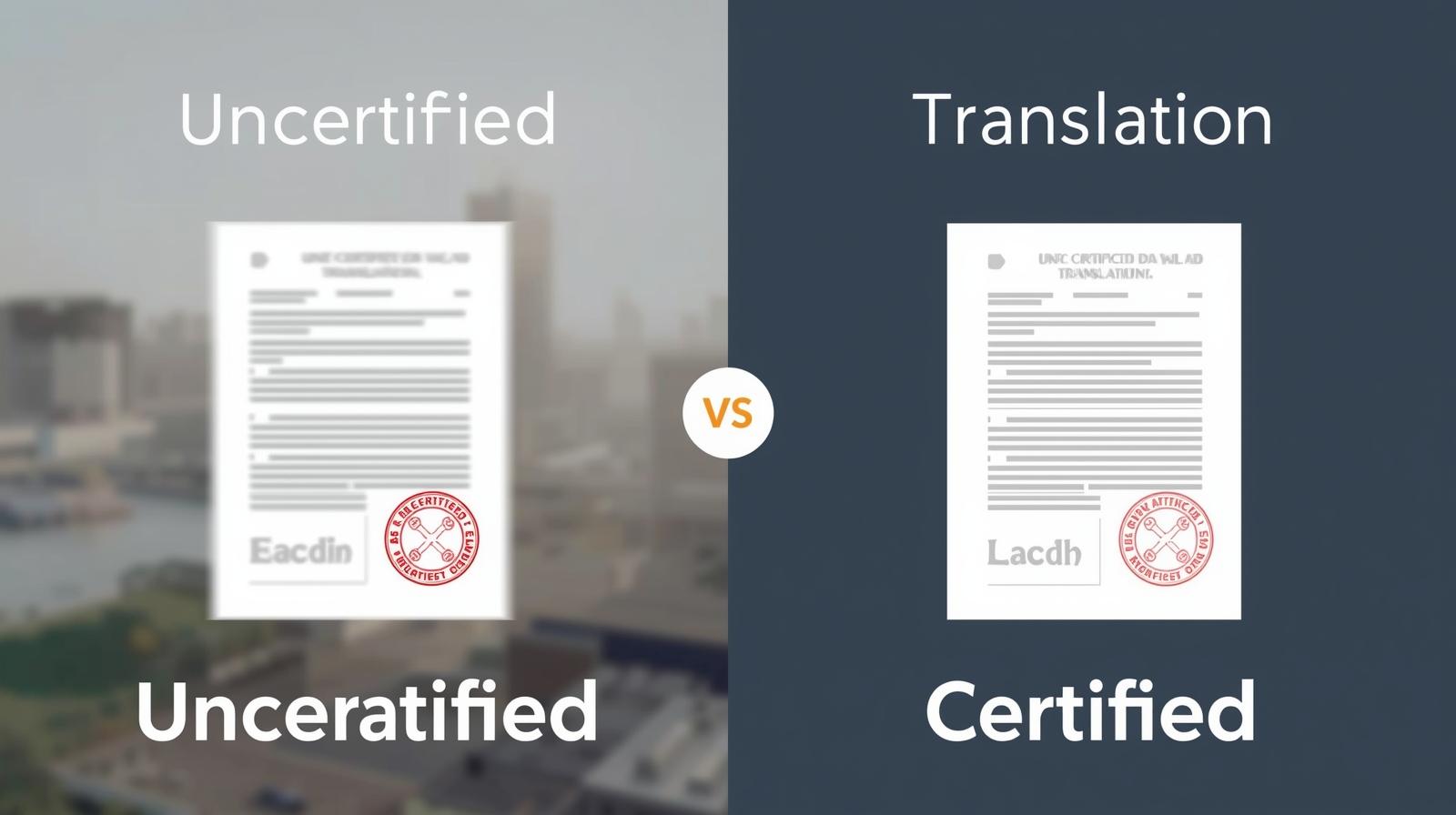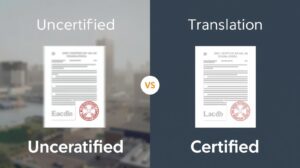Every year, thousands of people apply to move to the United Kingdom, whether for work, study, or family reunification. The UK immigration system is well known for its strict documentation requirements. One small error in your paperwork—especially when it involves language—can put your entire application at risk.
That’s why professional translators play such a crucial role in immigration success. When documents are not in English or Welsh, the Home Office requires an accurate certified translation. This is not just a formality—it’s a legal necessity. Inaccurate or uncertified translations can lead to costly delays, requests for additional evidence, or even outright rejection. So, Why professional translators are essential for UK? Let’s discuss in detail.
Disclaimer: Disclaimer: We do not give any legal advice to any client. We only do Translation. We do not give any authenticity and security and clarity of the documentation, as a disclaimer. We only do the Translation, it is the responsibility of the applicant to make sure they maintain authenticity of the document. If the documents are not authentic, the translation will be void. This disclaimer applies to every translation service we provide, including medical translations.
In this article, we’ll dive into why professional translators are essential for UK immigration success, examine the most common pitfalls, explore the benefits of expert translation, and provide actionable guidance for applicants.
Why Professional Translators Are Essential for UK?
Professional translators are essential in the UK to ensure accurate, legally compliant, and culturally sensitive communication. From legal documents and business materials to healthcare and government papers, their expertise prevents errors, and protects confidentiality.
Understanding UK Immigration Document Requirements
The UK Home Office sets clear guidelines:
- All documents not in English (or Welsh) must be submitted with a full certified translation.
- Translations must include:
- The translator’s full name and contact details
- A statement of accuracy
- The translator’s credentials or membership with a recognized body
- A date and signature
- The translator’s full name and contact details
This ensures the Home Office can verify the translation’s authenticity.
Examples of documents that typically need translation include:
- Birth, marriage, and death certificates
- Educational transcripts and diplomas
- Employment references
- Legal documents (court records, adoption papers, criminal background checks)
- Financial records, tax returns, or property ownership certificates
Without these translations, your application may not even be reviewed.
Ensuring Accuracy and Clarity
One of the most important reasons to hire professional translators in the UK is to ensure accuracy and clarity. Misinterpretation of documents can lead to serious consequences, particularly in sensitive sectors such as law, healthcare, finance, and government. Legal contracts, medical records, and official paperwork must be translated precisely to avoid misunderstandings or legal disputes.
For example, a mistranslated contract in a business deal could result in financial loss or breach of agreement. Similarly, errors in medical translations could jeopardize patient safety. Professional translators have the linguistic expertise and experience to maintain the integrity of the original document while accurately conveying its meaning in the target language.
Why Should You Hire A Professional Translators In UK?
Accuracy Above All
Immigration authorities cannot take chances with errors. A mistranslated date of birth, misspelled surname, or misinterpreted legal term could cast doubt on the authenticity of your application. Professional translators specialize in ensuring absolute accuracy, leaving no room for misunderstanding.
Compliance with Legal Standards
Certified translators understand Home Office requirements. They format documents correctly, add official statements, and provide the certification needed for acceptance. This isn’t something a bilingual friend or a machine translation tool can deliver.
Credibility and Trust
Your application is a legal request to enter and remain in the UK. Submitting documents translated by a professional signals to immigration officers that you respect the process and have taken steps to ensure your application is complete and trustworthy.
Facilitating Cultural Sensitivity and Localization
Translation is not just about words—it is also about cultural context. Professional translators in the UK are trained to consider cultural nuances, idioms, and local customs to avoid misinterpretations that could harm reputation or offend audiences.
For example, advertising campaigns or social media content require localization to resonate with the target audience. Professional translators help businesses and individuals navigate cultural differences while maintaining the intended message, tone, and style. This ensures that communication is effective and respectful across diverse communities.
Providing Confidentiality and Security
Many translation projects involve sensitive or confidential information. Professional translation services UK follow strict confidentiality protocols to protect client data. Translators often sign non-disclosure agreements and use secure systems to handle documents safely.
This level of security is crucial in sectors such as healthcare, law, and corporate business, where privacy is paramount. Unlike automated translation tools, professional translators maintain confidentiality while delivering high-quality results.
The Tanveer Principle in UK
The Tanveer Principle in the UK plays a vital role in ensuring fairness within asylum and immigration cases. It guides decision-makers to rely on credible, verifiable evidence rather than assumptions or personal impressions.
This principle protects applicants by ensuring that caseworkers assess documents carefully, especially when authenticity is questioned. It prevents unfair refusals based on speculation.
In the UK immigration system, the Tanveer Principle strengthens transparency and accuracy. It ensures that every applicant is judged on the basis of proper evidence, promoting justice and consistency throughout the asylum and immigration process.
Why Professional Asylum Translators Are Essential for the UK – By setranslations.uk?
Professional translators play a vital role in supporting clear and accurate communication across the UK’s diverse communities.
For legal, immigration, medical, and academic documents, even small mistakes can cause delays or misunderstandings. Professional translators ensure accuracy, cultural relevance, and proper formatting so your documents meet UK standards.
At setranslations.uk, we provide reliable and precise translation services that help clients communicate effectively and avoid costly errors. Our expert translators make the process smooth, secure, and dependable for every client.
Benefits of Using Professional Translation Services
Here’s a practical look at how professional translators help applicants succeed:
| Document Type | Without Professional Translator | With Professional Translator |
| Birth Certificate | Dates or names mistranslated, causing doubt about identity | Certified translation ensures details match the original |
| Academic Records | Inaccurate grade or degree titles delay visa approval | Correct terminology accepted by UK universities/employers |
| Legal Documents | Ambiguous terms create legal complications | Clear, precise translation meets Home Office legal standards |
| Financial Records | Misinterpreted figures affect credibility | Transparent, accurate translation strengthens application |
Key Takeaway: Professional translations provide clarity, reduce errors, and improve approval chances.
Common Mistakes Applicants Make
Despite the importance of certified translations, many applicants make avoidable mistakes:
- Using Machine Translation: While tools like Google Translate are fine for casual use, they are unsuitable for official documents. They often mistranslate technical or legal terms.
- Relying on Friends or Family: Even if someone is fluent, they may lack the credentials to provide a legally valid translation. The Home Office will reject uncertified documents.
- Ignoring Formatting Requirements: Translations must mirror the structure of the original document, with seals, stamps, and annotations clearly indicated.
- Skipping Certification: Submitting an uncertified translation is as bad as not submitting a translation at all.

Actionable Advice for a Smooth Immigration Journey
If you’re preparing your documents for UK immigration, here are practical steps to follow:
- Start Early – Collect all documents in advance. Translation may take several days, especially if you have multiple or complex documents.
- Use Accredited Translators – Always check if the translator or agency is certified and experienced in immigration-related work.
- Request a Bundle – Many agencies offer discounts for multiple documents, ensuring consistency across your application.
- Verify Formatting – Ensure the translated document matches the original layout to avoid confusion.
- Keep Copies – Store both originals and translations safely, as you may need them for future visa renewals or appeals.
Real-Life Examples: How Translations Affect Immigration
- Case 1: Student Visa
A student applying to a UK university submitted transcripts translated by a non-professional. The mistranslated grade system delayed the process, almost costing them their admission deadline. A certified translator corrected the issue, and the visa was later approved. - Case 2: Family Reunion Visa
A marriage certificate translation included a slight error in the bride’s surname. The Home Office questioned the validity of the marriage, requiring additional verification. A certified re-translation resolved the issue, but it cost months of delay.
These cases highlight the risks of cutting corners and why professional translators are worth the investment.
Accuracy is the Key to UK Immigration Success
Immigration is a life-changing journey, and success depends on attention to detail. Professional translators are essential for UK immigration success because they ensure documents are accurate, legally valid, and trusted by the Home Office.
By avoiding shortcuts and investing in certified translation services, you significantly increase your chances of a smooth, stress-free immigration process.
Preparing for your UK visa application? Contact our certified translators today to get accurate, compliant, and Home Office–approved translations that protect your future.
FAQs (Frequently Ask Questions)
Q1: Do I Really Need a Certified Translator for UK Immigration?
Yes. The Home Office requires certified translations for all non-English documents. Uncertified translations will not be accepted.
Q2: Can I Translate My Own Documents?
No. Even if you are bilingual, translations must be completed by an independent, qualified professional.
Q3: How Long Does It Take to Get Documents Translated?
Most standard documents are translated within 1–3 business days, though larger files may take longer.
Q4: What Happens If My Translations Are Rejected?
The Home Office may request resubmission or reject your application, causing delays and additional costs.
Q5: How Much Do Professional Translations Cost?
Prices vary depending on language and document type, but they are generally affordable compared to the potential costs of a visa refusal.
Conclusion
Professional translators play a vital role in the UK by ensuring accuracy, legal compliance, cultural sensitivity, and secure communication. From legal documents and government paperwork to business materials and marketing campaigns, professional translation services are essential for maintaining credibility, avoiding costly errors, and fostering effective communication across languages.
For individuals, businesses, and institutions, choosing professional translators in the UK guarantees reliable, precise, and culturally appropriate translations. In an increasingly connected world, professional translation is not just a service—it is a necessity. So, Why professional translators Are essential for UK? I hope that you may get your question answer.











